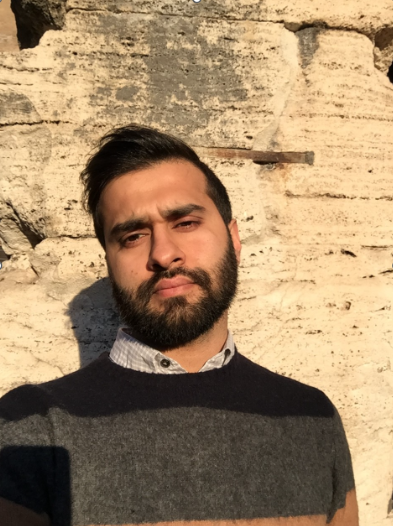
Prof. Ans Irfan, MD, EdD, DrPH, ScD, MPH, MRPL
Websites: Faculty Profile
Ans Irfan, MD, EdD, DrPH, ScD, MPH, MRPL is a multidisciplinary global climate health expert with over a decade and a half of experience as a global health equity strategist, both domestically and globally. As a pracademic, he has worked across cultures, continents, and countries, including Pakistan, China, and the United States, with an emphasis on climate justice and health. He currently serves as a professor at Keck School of Medicine, University of Southern California, where his teaching and applied research portfolio focuses on social, racial, and health equity intersecting with climate justice and climate innovation. His second academic appointment is at Harvard University as a Religion and Public Health Fellow with the Harvard Divinity School, where he explores the complex intersection of religious moral philosophy, social ethics, and public health policies, focusing on conceptualizing religion as a structural determinant of health and its implications for public health and climate action. Prof. Irfan also serves as the founding director of the Climate & Health Equity Practice Fellowship, and a Faculty Fellow with the Continuous Learning for Antiracist Curricular Change (CLARCC) Initiative. He continues to serve as a Senior Fellow with the Agents of Change in Environmental Justice Fellowship at Columbia University Mailman School of Public Health, along with serving as a climate expert with the 2023 Lancet Countdown U.S. Brief Working Group.
As a critical public health scholar, he combines multiple disciplines — including decolonial theory; global health; environmental and occupational health; health policy; migrant health; climate change; sociocultural anthropology; diversity, equity, and inclusion (DEI); organizational change management; program development, management, and evaluation; and implementation sciences — through a mixed-methods approach to provide innovative interdisciplinary public policy and programmatic solutions geared towards ameliorating social and health inequities. Select recent projects include: social equity implications of climate innovation at the intersection of technology and climate entrepreneurship; COVID-19 & Black transit workers' health; the intersection of religion and public health; and Exploratory Sequential Mixed-Methods evaluation of physicians’ training on climate change and health leadership. His work has appeared in publications such as Boston Globe, Scientific American, Environmental Research Letters, among others.
His community leadership and service portfolio includes serving in various roles with major national and international organizations, including UNESCO Inclusive Policy Lab, the Advisory Board of the American Public Health Association’s Center for Climate, Health & Equity; APHA Governing Council; Subject Matter Expert with the Environmental Protection Agency and National Academies of Sciences, Engineering, and Medicine; founding director of Center for Social Impact & Leadership with the DC Public Health Association, and supporting the United Nations Major Group for Children and Youth. He has previously served as a Science Policy Fellow with Christine Mirzayan Science Policy Fellowship at the National Academy of Sciences, a Fellow with the Robert Wood Johnson Foundation’s Health Policy Research Scholars Program, Harvard Innovation Labs at Harvard Business School, and Policy & Programming Director & founding member of the social impact nonprofit, the DrPH Coalition, Inc. He is also affiliated with the Harvard Climate Entrepreneurs’ Circle. Prof. Irfan can be contacted at ansirfan@gwu.edu. Twitter: @PHScientist
Research Areas:
EH MATTERS Internship description:
Fellows will be supporting one of the following projects:
1. Reimagining the Academy through a Decolonial Climate Justice Lens: This project will primarily involve qualitative data collection (IRB protocols, recruiting, scheduling, interviewing participants) and analysis, along with literature reviews to synthesize information which will contribute to the overall report on 'Reimagining the Public Health Academy through a Decolonial Climate Justice Lens'. This project is still in very preliminary/ideation phase.
2. Climate Innovation & Social Equity: Main project streams the fellows will likely work on will be along the lines of (a) defining climate innovation and (b) technology-based equitable climate innovation. This project has qualitative data.
Regardless, the projects will be qualitative (qualitative data analysis, collection, dissemination) and literature synthesis (scoping reviews) in nature with an emphasis on generating actionable policy/programmatic recommendations. Similarly, fellows should expect to support and co-author public scholarship (op-eds) to hone their climate science communications skills. Some of the skills fellows will develop/hone will be around qualitative data analysis, manuscript management/submission, science communications/thought leadership development.
Key Research Articles